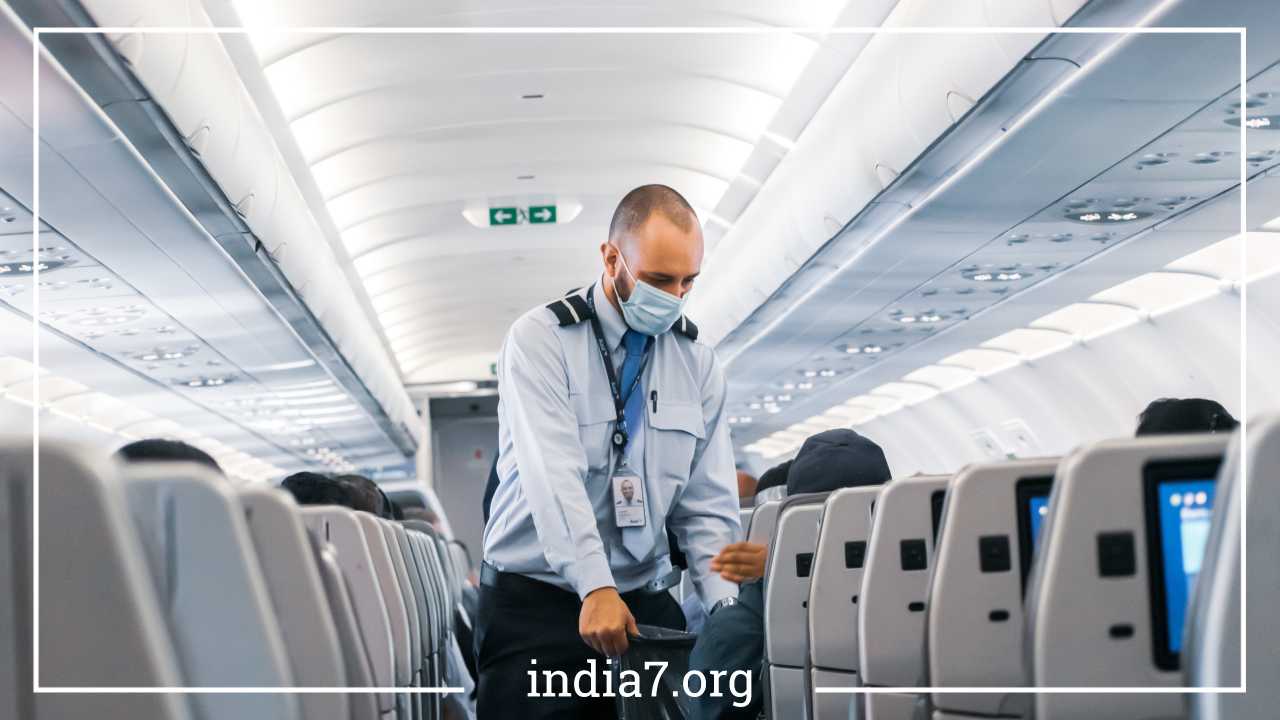International Air Travel Rules and Regulations – Expert Tips for Safe and Informed Journeys

International Air Travel Rules and Regulations
International air travel has become an integral part of the modern globalized world. Every day, in the United States alone, a substantial number of individuals, couples, and families embark on journeys via airplanes. Among these travelers, a considerable portion venture overseas or to foreign countries. As the popularity of international travel continues to soar, it’s highly likely that these numbers will keep rising.
In fact, you might find yourself contemplating a trip abroad. If that’s the case, it’s crucial to acquaint yourself with the rules and regulations governing international air travel.
Understanding the Distinctions
International air travel rules can often be confusing for many travelers, especially those who are more accustomed to domestic flights. This is because not everyone is aware that the regulations for international air travel differ from those for domestic air travel. While there are similarities, the distinctions are noteworthy, especially when you’re planning to travel internationally. Let’s delve deeper into these rules and explore what you need to know before your next international journey.
Airport Screening Process
One of the fundamental aspects of air travel, whether domestic or international, is the airport screening process. Regardless of whether an airport is designated as international or domestic, all passengers are required to pass through the relevant airport security checkpoints. This screening process involves a thorough examination of your carry-on and checked baggage.
In the past, baggage checks may have been less rigorous, but in today’s security-conscious environment, airlines and airport authorities have heightened their efforts. The primary aim is to ensure the safety and security of all passengers on board. As a result, almost all airlines now meticulously inspect checked baggage, looking for explosives, flammable materials, or prohibited items.
Consistency in Security Procedures
Due to the interconnected nature of air travel, many international airports offer both international and domestic flights. This arrangement means that passengers are not always segregated based on their travel destinations. Essentially, this means that the passenger screening procedures, as well as the screening for all luggage, will be the same for all travelers, irrespective of whether they are flying domestically or internationally.
During the security screening process, all travelers are advised to remove any accessories that might trigger metal detectors, such as belts and heavy jewelry. Additionally, passengers are required to take off their shoes, which are then sent through an x-ray machine. This measure is taken to ensure that there are no explosives or other dangerous materials hidden in footwear. While it might seem inconvenient, these precautions are in place to guarantee the safety of all passengers.
Identification and Check-In
One of the primary differences between domestic and international air travel is the initial check-in process. When you first arrive at the airport, you’ll need to approach the airline counter to check in. This is also where your checked luggage will be inspected and processed for the journey.
For domestic flights within the United States, passengers typically only need to present a photo ID, such as a government-issued identification card or a driver’s license. This is used to verify the passenger’s identity and ensure that the name on the ticket matches the name on the ID. However, if you plan to travel internationally, you’ll need to provide additional forms of identification.
The specific forms of identification required will depend on the departure and arrival airports, as well as the countries you’ll be visiting. These requirements are governed by international agreements and national security protocols. In some cases, you might need to present more than just a photo ID. Additional documents could include your birth certificate, passport, visa, or certificate of citizenship.
Understanding Passport and Visa Requirements
Passports and visas are crucial documents for international travel. Your passport is your primary form of identification when traveling abroad. It serves as proof of your citizenship and is typically required for entry into another country. Therefore, it’s essential to ensure that your passport is valid and will remain so for the duration of your trip.
In the United States, obtaining a passport involves submitting an application to the U.S. Department of State. The process can take several weeks, so it’s advisable to apply well in advance of your intended travel dates. Many countries require that your passport be valid for at least six months beyond your planned departure date. Therefore, it’s essential to check the entry requirements for your destination country and renew your passport if necessary.
Visas, on the other hand, are specific to the country you plan to visit. They grant you permission to enter and stay in that country for a designated period and purpose. Visa requirements vary widely from one country to another, and they depend on your nationality, the purpose of your visit, and the length of your stay. Some countries have visa exemption agreements with certain nationalities, allowing travelers to enter for tourism or business purposes without a visa for a limited period.
It’s crucial to research and understand the visa requirements for your destination well in advance. Visa applications often require you to provide supporting documents, such as an invitation letter, proof of accommodation, and financial statements. Additionally, visa processing times can vary, so it’s best to apply early to avoid any last-minute complications.
Proof of Onward Travel
Another important consideration for international travelers is proof of onward travel. Many countries require travelers to show proof of a return or onward flight ticket when entering the country. This requirement is in place to ensure that visitors do not overstay their allowed duration of stay as specified by their visa or visa waiver.
It’s essential to have a copy of your onward ticket or a confirmed itinerary that demonstrates your intention to leave the country before your visa or visa waiver expires. Without this proof, you may be denied entry at your destination or face difficulties at immigration checkpoints.
Customs Declarations
International travelers must also be aware of customs regulations and declarations. When you arrive at your destination country, you’ll typically need to complete a customs declaration form. This form asks you to declare items you are bringing into the country, including the value of these items.
Each country has its own customs rules and restrictions. Some items may be subject to duties or taxes, while others may be prohibited or restricted. It’s crucial to familiarize yourself with the customs regulations of your destination country to avoid any legal issues or fines upon arrival.
Health and Vaccination Requirements
In addition to travel documents and customs declarations, health considerations are also vital for international travel. Some countries require travelers to provide proof of specific vaccinations or undergo health screenings to enter the country. These requirements are in place to protect public health and prevent the spread of diseases.
One well-known example is the yellow fever vaccination requirement for travelers to certain regions of Africa and South America. Travelers are often required to show a valid yellow fever vaccination certificate before entering these countries.
Furthermore, the COVID-19 pandemic has introduced a new layer of health-related requirements for international travelers. Many countries have implemented entry and quarantine protocols to manage the spread of the virus. These requirements can change frequently, so it’s essential to stay updated on the latest travel advisories and entry restrictions for your destination.
Travel Insurance
Travel insurance is an important consideration for international travelers. While it’s not a mandatory requirement for entry into most countries, it can provide valuable protection and peace of mind during your journey. Travel insurance typically covers a range of situations, including trip cancellations, medical emergencies, lost luggage, and travel delays.
Medical coverage is especially important when traveling internationally. It can help cover the costs of medical treatment or evacuation in the event of illness or injury abroad. Some countries may even require travelers to have a minimum level of travel medical insurance coverage as a condition of entry.
When purchasing travel insurance, it’s essential to review the policy terms and coverage options carefully. Ensure that the policy meets your specific needs and provides adequate protection for your trip.
Currency and Financial Considerations
Managing your finances while traveling internationally is another critical aspect of planning your journey. Here are some key considerations:
- Currency Exchange: When traveling to a foreign country, you’ll likely need to exchange your home currency for the local currency. Exchange rates can vary, so it’s a good idea to compare rates at banks, currency exchange offices, and ATMs to get the best deal.
- Credit Cards: Credit and debit cards are widely accepted in many countries. However, it’s essential to inform your bank or credit card company of your travel plans to avoid any issues with card usage abroad. Additionally, some cards offer travel benefits, such as travel insurance or no foreign transaction fees.
- Local Currency: Having some local currency on hand when you arrive at your destination can be helpful for small expenses like transportation or snacks. You can obtain local currency at currency exchange counters at airports or withdraw cash from ATMs.
- Currency Conversion: Be aware of the currency conversion rates when making purchases with your credit card. Some businesses may offer to convert the purchase amount into your home currency at their exchange rate, which can be less favorable than your card issuer’s rate.
- Budgeting: Create a travel budget to track your expenses and ensure that you have enough funds for your trip. Consider factors such as accommodation, meals, transportation, activities, and souvenirs.
Cultural Sensitivity and Etiquette
Traveling to a foreign country often means encountering different cultures and customs. It’s essential to be culturally sensitive and respectful of the local customs and traditions. Here are some tips to keep in mind:
- Research: Before your trip, take some time to learn about the culture, customs, and etiquette of your destination. Understanding local norms can help you avoid unintentional cultural faux pas.
- Dress Code: Some countries have specific dress codes, especially in places of worship or formal settings. Research and adhere to any dress requirements to show respect for local traditions.
- Language: Learning a few basic phrases in the local language can go a long way in making a positive impression and navigating daily interactions.
- Greetings: Different cultures have varying ways of greeting people. It’s a good idea to learn the appropriate greetings for your destination and show respect when meeting locals.
- Religious Practices: Be aware of and respectful toward religious practices and beliefs in the country you’re visiting. Some areas may have restrictions on photography or require modest attire.
- Tipping: Tipping customs can vary widely from country to country. Research the tipping practices in your destination to ensure that you show appreciation appropriately.
Safety and Security
Safety should always be a top priority when traveling internationally. Here are some tips to enhance your safety during your journey:
- Travel Advisory: Check the travel advisories and safety recommendations issued by your government for your destination. These advisories provide valuable information about potential risks and safety measures.
- Register with Your Embassy: Many countries offer services for their citizens traveling abroad. Consider registering with your embassy or consulate in your destination country. This can help them locate and assist you in case of emergencies.
- Travel Insurance: As mentioned earlier, having travel insurance can provide coverage in case of unexpected events or emergencies. Ensure that your policy includes medical coverage and emergency assistance.
- Stay Informed: Stay informed about local news and developments in your destination. Knowledge of current events can help you make informed decisions about your travel plans.
- Emergency Contacts: Carry a list of emergency contacts, including local authorities, your embassy or consulate, and your travel insurance provider.
- Personal Safety: Be vigilant and aware of your surroundings. Avoid displaying valuable items, and use hotel safes to store passports and other valuables. Stay in well-lit and populated areas, especially at night.
- Local Laws: Familiarize yourself with the local laws and regulations in your destination. Ignorance of the law is not an excuse, and violations can have serious consequences.
Transportation and Navigation
Getting around in a foreign country can present unique challenges. Here are some transportation and navigation tips for international travelers:
- Local Transportation: Research the local transportation options available at your destination. This may include buses, trains, subways, taxis, and rideshare services. Familiarize yourself with the routes and schedules.
- Language Barrier: If you don’t speak the local language, it can be helpful to have key addresses and destinations written down in the local language or saved as digital maps on your smartphone.
- Maps and Navigation Apps: Use maps and navigation apps to help you navigate unfamiliar streets and locations. Apps like Google Maps can provide directions and public transportation information.
- Safety in Transit: Be cautious when using public transportation, especially in crowded areas. Keep an eye on your belongings, and be aware of pickpocketing risks.
- Local Currency for Transportation: In some countries, it may be necessary to use local currency for transportation fares. Ensure you have small denominations of the local currency for buses, trams, or subways.
- Airport Transfers: Plan your airport transfers in advance. Some cities offer airport shuttle services or convenient train connections to the city center.
Communication and Connectivity
Staying connected while traveling internationally is essential for communication, navigation, and accessing information. Here are some tips for managing communication and connectivity:
- SIM Cards and Mobile Plans: Consider purchasing a local SIM card or an international mobile plan to ensure you have access to voice and data services while abroad. Check compatibility with your phone.
- Wi-Fi Availability: Many hotels, restaurants, and public places offer free Wi-Fi. Take advantage of Wi-Fi hotspots to save on data usage.
- Messaging Apps: Use messaging apps like WhatsApp or Skype for free or low-cost international calls and messages.
- Emergency Contacts: Ensure that you have a way to contact emergency services, your travel companions, and your embassy or consulate.
Packing Essentials
Packing for international travel requires careful consideration of your destination, the duration of your trip, and the activities you have planned. Here are some packing essentials to keep in mind:
- Travel Documents: Ensure that you have all required travel documents, including your passport, visa, driver’s license, and any necessary permits. Make photocopies or digital scans of these documents and store them separately.
- Travel Wallet: Use a travel wallet or pouch to keep your travel documents, cash, and credit cards organized and secure.
- Adapters and Chargers: Research the electrical outlets and voltage in your destination country and bring the appropriate adapters and chargers for your devices.
- Medications: Pack any prescription medications you may need, along with a copy of your prescription. Consider over-the-counter medications for common ailments like headaches and stomach upset.
- Travel-sized Toiletries: Bring travel-sized toiletries to comply with airline regulations and save space in your luggage.
- Travel Comfort Items: Consider items that can enhance your comfort during long flights, such as a neck pillow, eye mask, earplugs, and noise-canceling headphones.
- Weather-appropriate Clothing: Pack clothing suitable for the climate and activities at your destination. Check the weather forecast before your trip.
- Universal Travel Adapter: A universal travel adapter with multiple plug types can be handy for charging devices in different countries.
Final Thoughts
International travel offers exciting opportunities for exploration, cultural enrichment, and personal growth. However, it also comes with unique challenges and considerations. By understanding and preparing for the rules and requirements of international air travel, you can ensure a smoother and more enjoyable journey.
Remember that careful planning and research are key to a successful international trip. From obtaining the necessary travel documents to staying informed about local customs and safety measures, each step plays a crucial role in ensuring a memorable and stress-free travel experience.
If you ever find yourself uncertain about a particular rule or requirement during your international travel, it is advisable to seek assistance from professionals, either at the international airport or from the international airline. Their expertise can help you navigate any unexpected situations and ensure that your journey is as seamless as possible.
In conclusion, international air travel may have its complexities, but with the right preparation and knowledge, you can embark on your global adventures with confidence, knowing that you are well-equipped to navigate the rules and regulations of the international travel landscape. Safe travels!



